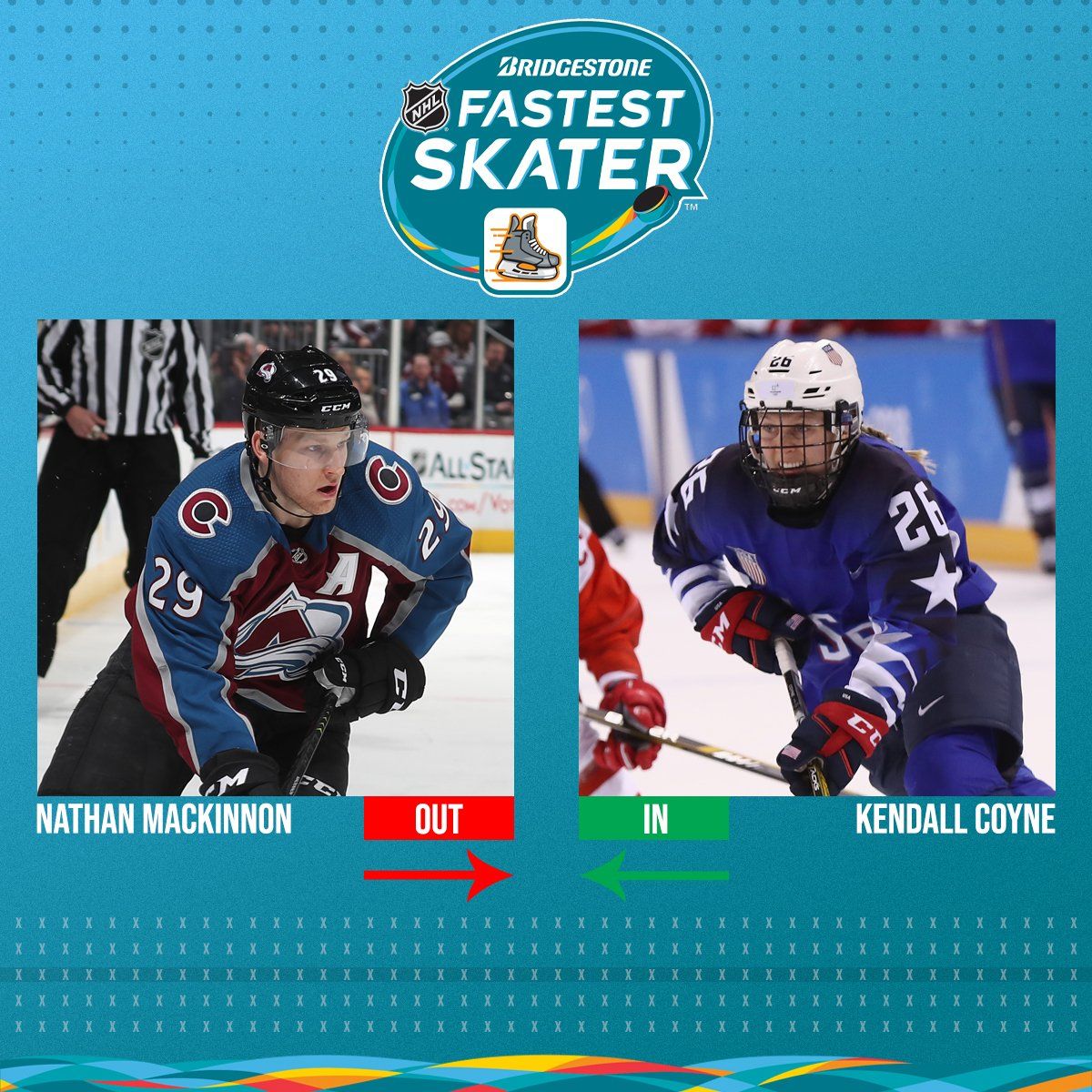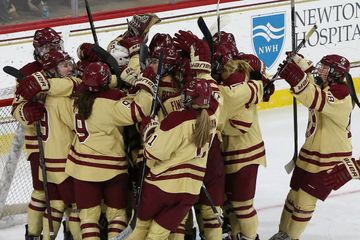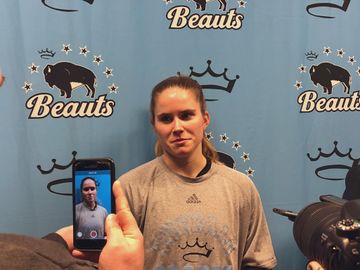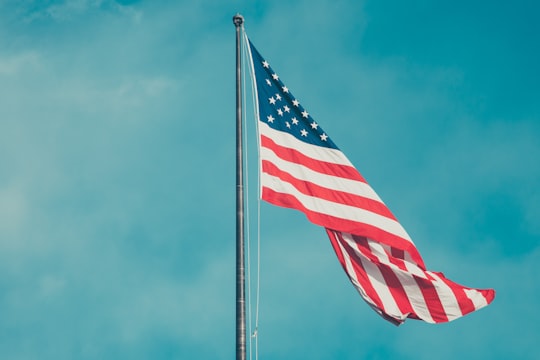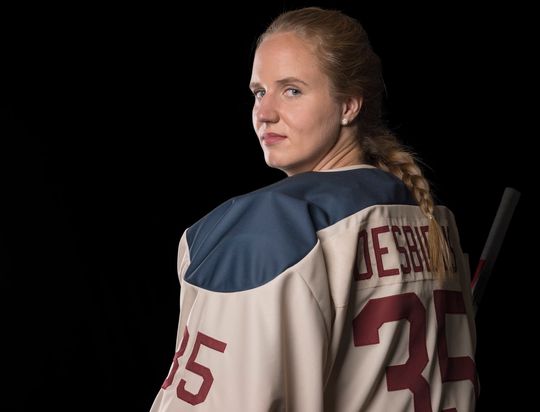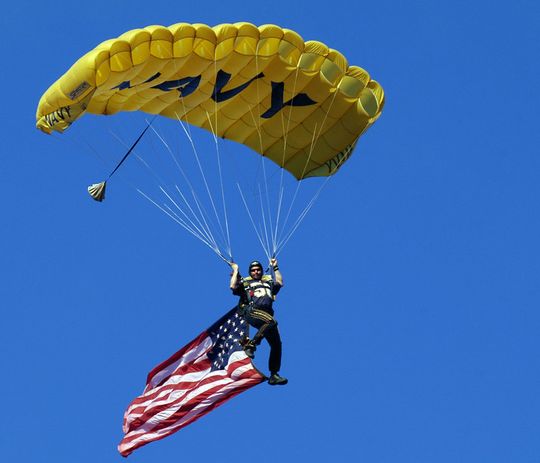As these things usually go, it felt like an afterthought.
On January 22, three days before the NHL All-Star Game was set to kick off in San Jose, California with the NHL All-Star Skills Competition, several high-profile members of the US and Canadian women's national teams announced on their Twitter accounts that they would be participating: Kendall Coyne Schofield (Minnesota Whitecaps/NWHL), Brianna Decker (Calgary Inferno/CWHL), Rebecca Johnston (Calgary Inferno/CWHL), and Renata Fast (Toronto Furies/CWHL).
Notably, the NHL did not generate any original social media publicity about this matter, merely retweeting the players' announcements on their own accounts. This has happened before when the NHL has included the women's leagues in their marquee events, notably in the Outdoor Women's Classic in 2016. Tweets (which are an easy, fast, and free way for the NHL to reach its 6.16 million followers) were not leveraged to promote the women's game – and that was just at the outset. It was later clarified by USA Hockey that the players would be participating as "special guests", rather than actual participants in the skills competition.
Very excited to represent Hockey Canada with @RenataFast and take part in the 2019 NHL All Star skills competition this weekend! pic.twitter.com/crLoVfnfsE
— Rebecca Johnston (@RJohnst6) January 22, 2019
Excited to participate in the 2019 NHL skills competition this weekend with my liney @KendallCoyne ! We can’t wait to represent @usahockey at such an amazing event! Hope to see you all there!! pic.twitter.com/TaNOA18vf0
— Brianna Decker (@Bdecker14) January 23, 2019
Beyond the failures to promote the game in a traditional context, the inclusion of women for a second straight year in the NHL All-Star Skills Competition raises the same old concerns about gender representation and resource parity in sports in an increasingly high-profile setting.
It should be obvious that the most skilled players who participate in women's hockey leagues are talented and dynamic, just like the most skilled players who play men's hockey. The inclusion of women athletes in these competitions would be progressive, if they were actually included. Kendall Coyne Schofield was eventually included in the Fastest Skater competition, last minute, as a replacement for the Colorado Avalanche's Nathan MacKinnon who was in Colorado undergoing an MRI on his foot and then traveled to participate in the festivities despite his injury.
Kendall Coyne will be replacing Nathan MacKinnon in the fastest skater competition tonight at the NHL Skills Contest #NHLAllStar
— Marisa Ingemi (@Marisa_Ingemi) January 25, 2019
Had MacKinnon been healthy, this never would have happened – despite the fact that Coyne Schofield's speed is notable in the sport. It begs the question what the intention is behind asking women's athletes to participate at all while continuing to highlight their achievements as secondary to men's, as fun gimmicks or sideshows. It highlights the truly bizarre reality of gender segregation in sports competition in general, and in hockey specifically. All of these players could play together, could take the best of each league's rules and practices to create a better overall sport that focuses on skill and speed and strength. Hockey could actually be for everyone, in the sense that the culture could actively work towards eliminating notions of gender superiority. (It could, in short, be less cis and less segregated and less binary.)
However, the fact that Coyne Schofield completed the course ranking comfortably among the fastest skaters in the NHL was still treated as something not serious – something that is fun under the guise of an All-Star event but not something that should carry over to the real world. NBC commentator Pierre McGuire, often noted for standing too close to or getting handsy with players he interviews, touched Coyne Schofield on television and also told her "no one wants to lose to you" on national television, while expressing shock at how fast she is:
The Los Angeles Kings also joked about signing her:
Hey @KendallCoyne, we’re looking to add some speed... Interested? pic.twitter.com/3IT9eKmXTd
— LA Kings (@LAKings) January 26, 2019
Which would be funny – if a contract for a 26-year-old professional athlete arguably at the peak of her career and clearly one of the fastest skaters in the sport weren't a potentially reasonable thing to do. Of course, Coyne Schofield is already a member of the NWHL's Minnesota Whitecaps and makes a very small percentage of the NHL's league minimum salary. (Editor's note: Kendall Coyne Schofield is notably friends with and has defended accused rapist Patrick Kane and has also in the past tweeted and liked tweets about how NFL anthem protests are disrespectful to the US military, which does not align with the Victory Press's values.)
Speaking of payment, Brianna Decker, who plays for the CWHL's Calgary Inferno, did a demonstration of a passing accuracy competition which she notably completed over 3 seconds faster than any NHL participant at 1:06:
BRIANNA DECKER IS A GODDESS
— Abby @ all star (@ArrowsandDemons) January 26, 2019
Here’s her absolutely KILLING it!!! #NHLAllStar pic.twitter.com/e4Z8povq85
This did not go unnoticed by fans and the buzz became a Twitter campaign to #PayDecker, which is a testimony to how far behind the NHL is at recognizing the value of players outside of their bubble. The winner of the passing competition ("officially" the Oilers' Leon Draisaitl) makes $9 million US per year and does not need the $25,000 cash prize to cover his living expenses – but any women's hockey player would benefit considerably from that windfall. With the deal that Decker and her teammates received from USA Hockey to resolve their 2017 labor dispute, Decker likely makes up to $70,000 US plus her salary from the CWHL which cannot be more than $10,000 CAD, with a guaranteed base salary of $2500 CAD since this is her second year in the CWHL.
So: $25,000 is likely a significant amount of money to Brianna Decker, even as one of the players in the women's game who likely receives the most compensation due to her association with the US Women's National Team. A considerable increase of her yearly wages for Decker versus a small bonus for a multiple millionaire seems like a rather dystopian comparison when you actually look at the numbers and what the cost of living is for an average person in a major North American city. For most of us, and for most women's hockey players, $25,000 would be a life-changing amount of money – but the NHL exists on a plane of morality where conspicuous wealth is normal, accepted, and in fact the goal of being a professional men's hockey player. The starkness of this comparison could not be more obvious.
What's more grim and hilarious about this is that Brianna Decker by her own admission was just "casually" trying to do the drill – and she did so better than any of the men who were actually competing. She didn't show up to get paid, but she should.
For more bizarre dissonance, here's Rebecca Johnston doing the puck control demonstration, with audio of Nathan MacKinnon talking about how he didn't think that Kendall Coyne would be that fast:
The @InfernoCWHL's @RJohnst6 demoing the Puck Control contest #NHLAllStar #CWHL pic.twitter.com/66SQFvgktN
— Women's Sports Highlights (@WSportHilites) January 26, 2019
Renata Fast also demonstrated the shooting accuracy competition, but I have not been able to find video of it. Like every time the NHL does something like this, it will likely be forgotten in a few weeks, and they will continue to allocate their resources primarily to men while continuing to ask women to prove their worth for little reward and only cursory, symbolic rewards – meanwhile continuing to be an overwhelmingly white and privileged league that lacks true commitment to diversity and equity.
The more I distance myself as a writer and as a sports fan from the NHL, the more obvious it becomes to me that gender segregation in sports is a farce made up by patriarchal society to insulate itself, even as it becomes increasingly clear in our society that gender is not binary and has untold amounts of variation. As trans and non-binary people continue to elevate their voices and speak to their own truths about gender, it should become clear that current gender-segregated sports models are not sustainable – not just from an inclusion perspective, but from an economic one.
We live at a time in the United States and Canada in which wealth inequality is growing, and the income gap exists in a very clear line across race, gender, sexuality, and birthplace. Women do not make as much as men. Trans and queer people are among the most likely to be poor. One of the best income predictors is where you are born. White people systemically benefit from privilege and inherited economic security, and people of color continue to earn lower wages. And yet when we talk about closing these gaps, we talk about minorities earning more, but not about the still-taboo subject of white folks and cis men making less.
To even the playing field, resources have to be distributed equally. The same applies to sports. Representation does not substitute for actual material support (though we do need both!), and material support being provided equally would ultimately improve the game of hockey. This needs to be an idea that is taken seriously and not treated like joke for social media likes and shares. However, the reason why progress is made so slowly in this regard is because to conceptualize it as a real option, it would require the NHL and men's hockey players and white people who participate in hockey to confront uncomfortable truths about their decades of racism, appropriation, and misogyny.
We are so egregiously far behind that white women beating men at skills competition is still considered a novelty, a sideshow, a one-off – and this, the most vanilla representation imaginable for some of the most talented women's hockey players, is getting lauded in social media for its progressivism. The NHL has done the bare minimum – the bar is literally on the ground – and they will continue to get brownie points for it while failing to address any real, material issues of inequality within hockey generally or even within their own men's league.
All-Star competitions have the potential to be deeply joyful celebrations of what makes sports fun to watch and play. And based on the fan and media response to the inclusion of Johnston, Fast, Decker, and Coyne Schofield in this weekend's festivities, people close to the sport are absolutely hungry for more of this. Imagine if we did it better. Imagine if the bar weren't on the floor how incredibly good this sport could be. It's just so disappointing to settle for this. Imagine if we didn't have to.
Update 1/26/19 6:15PM:
CCM Hockey is going to give Brianna Decker $15,000 US since she literally won the passing skills competition, and per TSN's Frank Seravalli, the NHL will also be "stepping up to do something" for all of the women who participated, though no explanation has been provided as to why they weren't "doing something" already.
Really cool of @CCMHockey. I'm told the #NHL is stepping up to do something for not just Decker, but all of the women that participated in last night's #NHLAllStar Skills. https://t.co/CtC96H3uip
— Frank Seravalli (@frank_seravalli) January 26, 2019
Correction: an earlier version of this article misstated the amount of money Brianna Decker makes from USA Hockey, which may be up to $70,000 annually plus potential bonuses in Olympic years and per diems for traveling.
